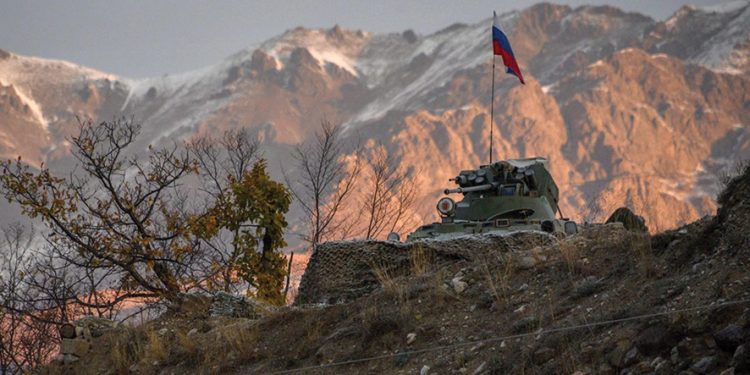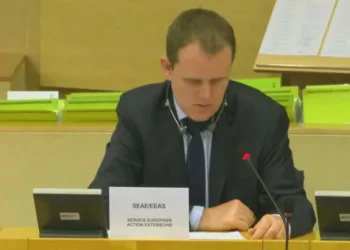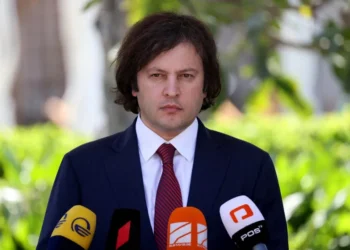With Russia’s second invasion of Ukraine, the power competition has intensified in the South Caucasus. Though applied to different regions of Eurasia, where continental powers vie for energy resources and control of strategic swathes of lands, an application of the concept for the South Caucasus has yet to be made. The region is a good study case of the intensifying rivalry, especially because three Eurasian powers—Iran, Russia, and Turkey—increasingly strive to build a new system and mode of behavior for Armenia, Azerbaijan, and Georgia. In other words, the study of the Eurasian powers’ behavior in the region sheds light on some critical elements of the emerging world order.
To be sure, competition has always been present in the region. Even in the wake of the Soviet collapse and America’s unipolar moment, the rivalry in the South Caucasus was evident in the form of advancing competing infrastructure projects, support for separatist regimes to limit Western penetration, and the relatively high pace of militarization. In the course of the last several years, the competition has become more pronounced, with all the above trends suggesting a more intense character both among the players which surround the South Caucasus, and between the regional and external (mainly the collective West) powers. China, a relative newcomer to the region, will be seeking to attain knowledge of the geopolitical intricacies to elevate its economic presence in the South Caucasus and play a greater role on par with the regional powers.
The regional powers put a special emphasis on building new regional organizations, aiming to cement their position. There is still a lack of agreement among the regional powers on which security cooperation and conflict-resolution mechanism is most acceptable, yet the evolving process indicates the growing ability of Iran, Turkey, and Russia not only to influence the region, but also to preclude external powers and ultimately construct a new order from the Black Sea to the Caspian basin.
Russia’s calculus on developing better relations with Turkey and Iran is clear to see on the regional map. Common understanding with Ankara and Tehran allows Moscow to fortify its position not only in the South Caucasus but in the two spaces flanking the region. In the Black Sea, Russia wants to manage together with Turkey, and in the Caspian basin with Iran. Other littoral states matter less, though when deemed necessary they can be consulted or forced into agreement. The critical element here, however, is the exclusion of non-regional powers from exercising influence. For instance, the 2018 convention on the legal status of the Caspian Sea talks about the “non-presence in the Caspian Sea of armed forces not belonging to the Parties”.
The approach resuscitates the regional ownership concept, when regional powers tend to squeeze out non-regional actors. Essentially, Iran, Turkey, and Russia manage three interlinked spaces which make up the whole corridor from Central Asia to eastern Europe. The regional ownership says a great deal about the changing world order and its impact on the South Caucasus. The pursuit of exclusive geopolitical rights also signals the re-emergence of the spheres of influence idea. Criticized in the West as a relic of the past, the notion creeps back to life as the liberal order finds itself increasingly hurdled by internal and external challenges. Russia has always been a staunch supporter of the concept, as it guarantees a special place in South Caucasus affairs, as it has since the Soviet collapse. But Moscow has also been cautious not to overestimate its power, mindful of its limits, and seems willing to approach the regional and global geopolitical trends more realistically. The latter means seeing the South Caucasus not as an exclusive Russian sphere of influence, but rather as a space where it would have to both cooperate and compete with other regional powers. The difference is that Moscow now prefers to talk to Iran, and more so Turkey, in responding to rising challenges. Here, too, Russia seeks primacy, but it understands that in a highly globalized world and amid its disastrous invasion of Ukraine, managing the region as the Russian Empire or later the Soviets did is now impossible. Therefore, working with Ankara and Tehran seems more suitable to Moscow’s long-term interests.
Moscow wants a loosely built system not organized or regulated by strict rules peculiar to alliance logic. Russia will also try to build a sort of a hierarchical system where it wants to hold the foremost place. In a way, this will be similar to the “first among the equals” idea, where the hegemon’s prestige and military power are decisive and serve as an effective preventer of disagreements spilling into open rivalry.
Analysis by Emil Avdaliani














